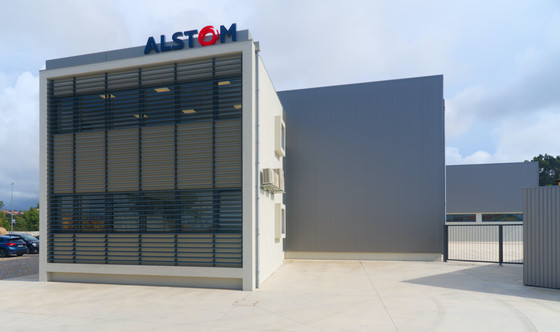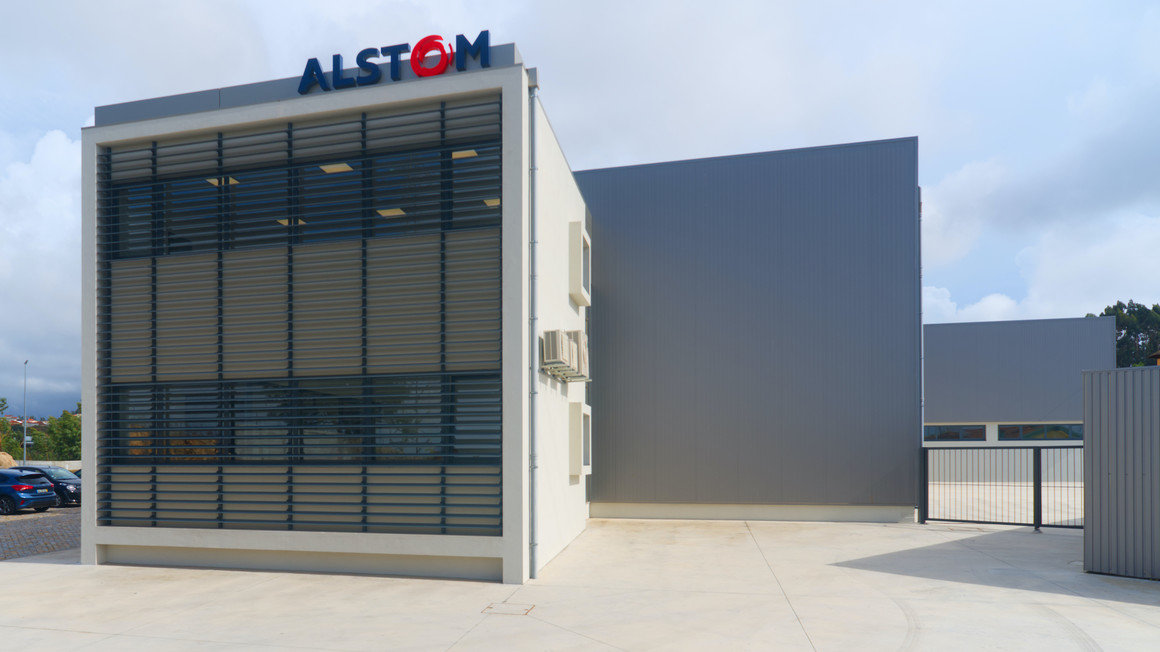
Alstom opens new Engineering and Innovation centre in Portugal
Press contact - Spain and Portugal
Irma Aguado
Send an email-
Located in Maia, in the Porto district, the new site is part of the company's expansion strategy in the country
-
The new facilities include signalling labs, engineering offices, a warehouse and a component repair area
-
Additionally, Alstom will collaborate with the Technical University of Porto, in the organization of a master’s degree focused on smart and sustainable mobility
14 September 2022 – Alstom, a global leader in smart and sustainable mobility, has just opened a new Engineering and Innovation centre in Maia, Porto district. The company moves forward in its commitment to increase its footprint in Portugal and provide better service to its customers and projects in the country.
Alstom's new site in Maia will have as its main mission to develop cutting-edge solutions in the area of digital mobility and signalling, both for the Portuguese market and for Alstom's international projects around the world. With a total size of approximately 460 m2 and an initial team of 25 engineers and technicians, the centre has an ambitious growth plan for the upcoming years.
-
460 m2total size
-
25engineers and technicians
"Alstom's commitment to the Portuguese market is demonstrated by the inauguration of the new Engineering and R&D centre in Maia, which will have advanced technical and logistical competences, also contributing to the creation of more quality jobs in Portugal."
The new site also includes a warehouse with capacity for storage and repair of components for the current projects and clients that Alstom is working with, in Portugal.
During the inauguration, David Torres, Managing Director of Alstom Portugal, stated that "Alstom, based on the experience of its extensive portfolio, aims to boost the railway sector in Portugal, bringing its expertise in the development of sustainable mobility solutions. The company is strongly committed to the Portuguese market, actively contributing to the development of the industry and the local economy. This commitment is demonstrated by the inauguration of the new Engineering and Innovation centre in Maia, which will have advanced technical and logistical competences, also contributing to the creation of more quality jobs in Portugal".
For his part, the Mayor of Maia, António da Silva Tiago, considered that “Maia is today an economic and social ecosystem that integrates in its territory a vibrant and dynamic business reality, particularly in the field of medium and medium-high technology companies, occupying, at this level, top places in terms of regional and national reckoning. I congratulate Alstom for choosing Maia, and for adding more value to our ecosystem, through the installation of its engineering and innovation centre, in the Parish of Pedrouços – Maia.”
Representing the Portuguese Railway Platform, its Director Executivo Paulo Duarte, highlighted “the importance of creating a railway technical centre in Portugal, which provides a prompt and high-quality response to the needs and requests of railway operators in our market, contributing to a more sustainable and social responsible mobility.”
On behalf of the Centro de Competências Ferroviário, Prof. Andrade Ferreira highlighted the “important role of Alstom's new Innovation centre, as well as the collaboration between this company and the CCF, in order to explore new opportunities in terms of knowledge sharing, entrepreneurship, innovation and applied research, with positive effects on the national economy.”
Alstom has been present in Portugal for over 30 years and, currently, two out of three trains in circulation in our country were manufactured by Alstom or with Alstom technology, including high-speed, regional, metro and tram trains. In the digital sphere, more than 1,500 km of the Portuguese rail network and more than 500 on-board units are managed by Alstom's Convel ATP system, a signalling solution developed specifically for the Portuguese market. In terms of urban mobility, Alstom was in charge of the signalling system for Metro do Porto and the 102 trains that currently serve this network, also providing the ATP (Automatic Train Protection) system installed on board the 18 trains recently acquired by this operator.
